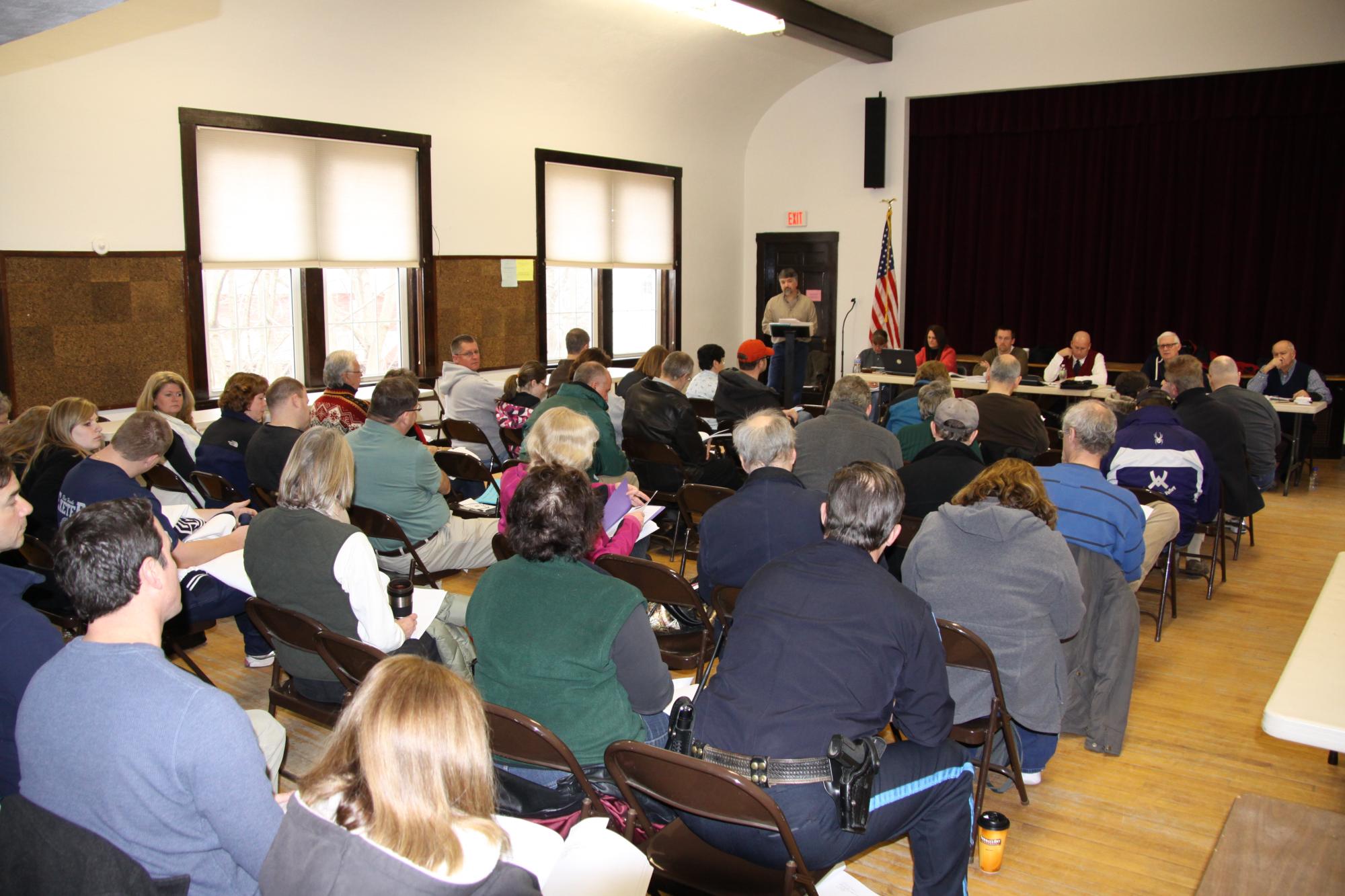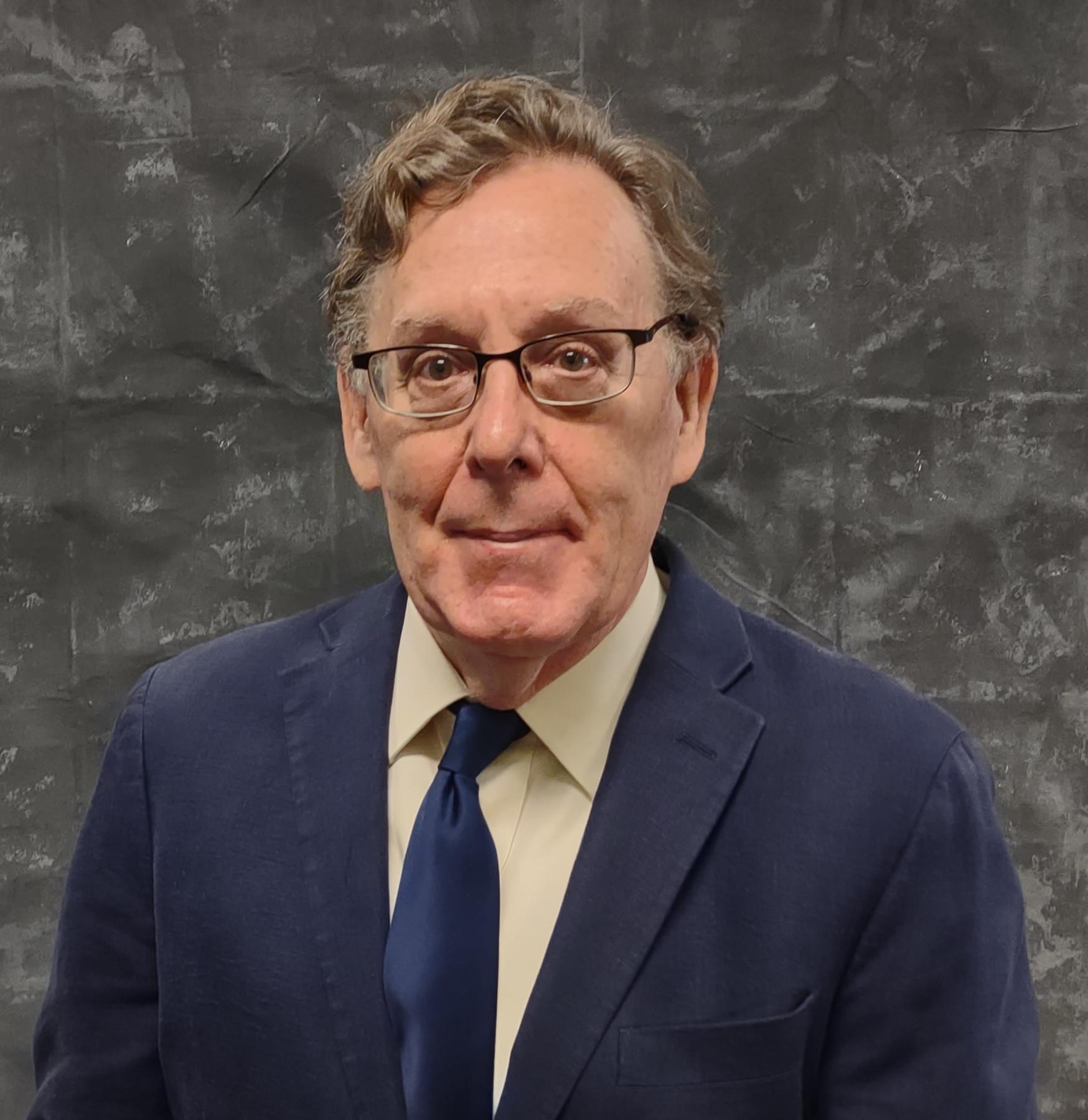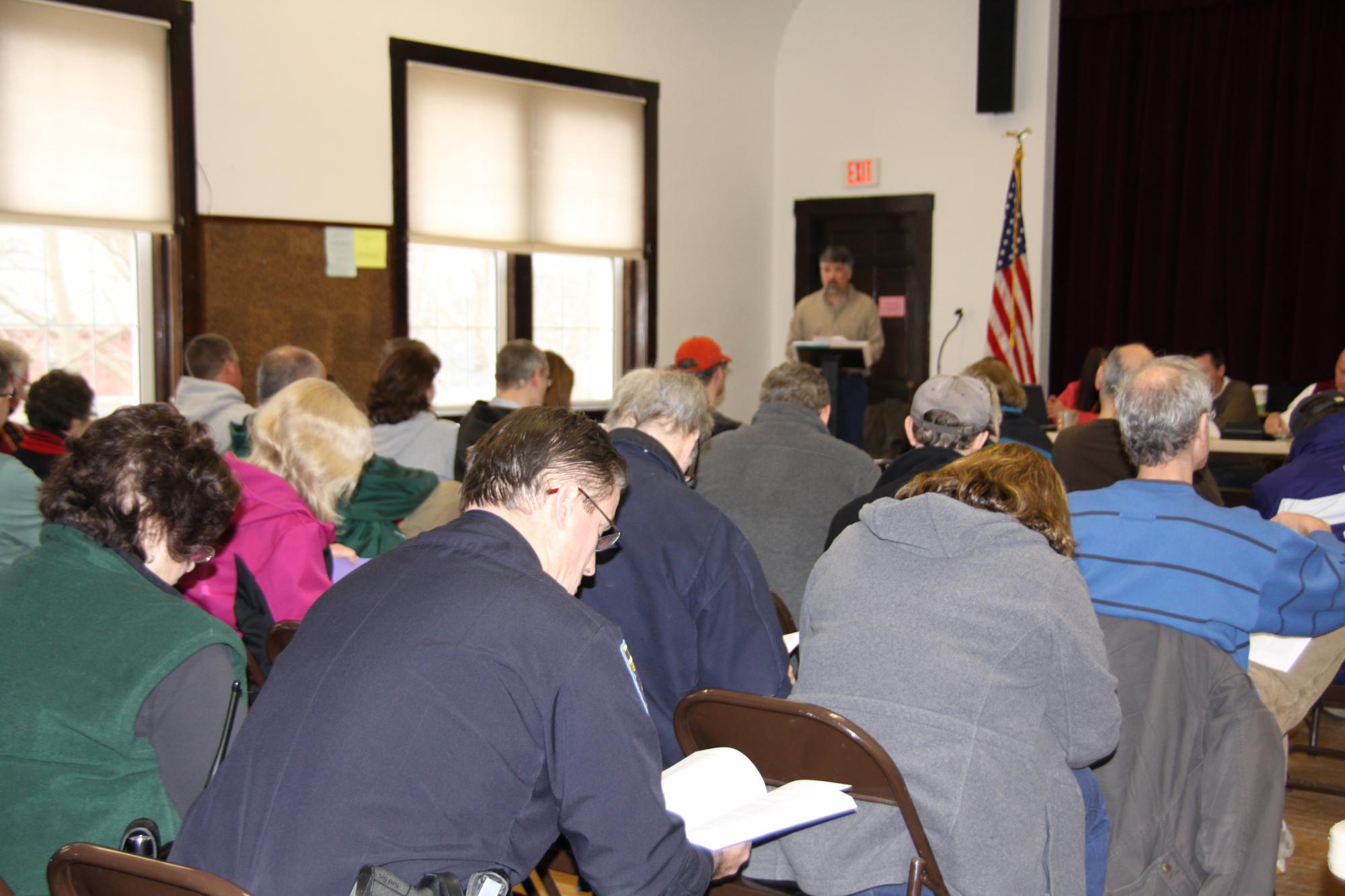The information contained in this article is not intended as legal advice and may no longer be accurate due to changes in the law. Consult NHMA's legal services or your municipal attorney.

I. Advanced Preparation is Critical!
Experienced moderators know that they are but one person, and that the cooperation and assistance of many other persons is needed to plan, prepare, and conduct the deliberative session or business meeting of a municipality. Consider the roles that others perform:
A. Creating the Municipal Budget and Related Warrant Articles
- The governing body, the select board or town council. This body creates the initial version of the budget, and in the absence of an official budget committee also conducts the required public hearings. The governing body also creates the language of the warrant considered by the deliberative session in an official ballot (SB 2) municipality or the business session of a traditional town meeting.
- The administrators, whether a town manager or town administrator, and the department heads. These staff members perform the difficult tasks of creating detailed budget proposals to be considered by the governing body, and also provide support to the advisory or official budget committee by answering inquiries for supporting details as they are developed. These persons often draft and file the necessary forms with the Department of Revenue Administration during the entire year, and input data into the Municipal Tax Rate Setting Portal (MTRSP). They also interact with their counterparts at the school district to provide information and to transfer funds appropriated to the school but collected through the municipal tax collector.
- The official budget committee. If the municipality has voted to create one of these committees, these citizens review the proposed municipal and school district budgets in detail, offer comments on the proposed appropriations for the upcoming year, conduct the required public hearings and create the budget of recommended appropriations presented to the legislative body. The process takes hours of time over a several-month period. When working appropriately, the committee members often identify areas for improvements in efficiency and municipal and school program delivery. If the committee is an advisory committee, rather than an official committee, they do not conduct the public hearings or create the actual budget presented to the legislative body.
- The planning board. This board is the source of proposals for land use ordinance adoption or change. These proposed changes are often detailed and complex and respond to changes in state and federal environmental laws and regulations. They may take months to create and are the subject of public hearings and comment.
- The library trustees and library staff: This group creates the budget proposal for library services to be offered for the upcoming year. They administer the appropriation from the legislative body, and often administer funds left to the library in trust for the provision of library services.
- The cemetery trustees. The trustees create the budget proposal for maintenance and upkeep of municipal cemeteries and private burial grounds that have come under municipal control. They administer the appropriation received for these purposes as well as funds received from income of perpetual trusts held by the trustees of the trust funds.
- The trustees of the trust funds. These trustees administer funds held in trust for the long term to achieve specific objectives, such as perpetual care of cemeteries, capital reserve funds, and scholarship funds. They have specific reporting requirements and account annually for the principal and income of the funds entrusted to them.
- Elected officials. These officials, including the town clerk, the elected tax collector and elected treasurer often prepare the proposed budgets for their offices and make proposals for their compensation. They have many statutory duties to perform daily, as well as specific accounting and reporting duties for the funds entrusted to them.
- Optional elected officials, such as the road agent. In the municipalities which have created these offices, these officials often prepare and advocate for appropriations needed to achieve their statutory responsibilities.
- The municipal attorney. The attorney assists the governing body in the preparation of the annual warrant and offers opinions on the meaning and enforceability of any warrant articles created by the petition of citizens. The attorney may offer suggestions for possible governing body authored amendments to such warrant articles and may be present at a deliberative session (SB 2) or business session (traditional town meeting) to assist the governing body and/or moderator with procedural aspects of these sessions, or the meaning or enforceability of amendments offered by citizens.
- Municipal Services Staff of the DRA. DRA assists the governing body and the moderator with the review of the language of the annual warrant to determine whether the language complies with statutory requirements or may create issues that would cause this regulatory agency to disallow an appropriation contained within a warrant article.
B. Persons Who Assist at the Meeting Place
- Owner(s) of the place where the official balloting or the business meeting is held. The moderator, along with the respective governing bodies, works with the facility owner to assure that the polling place is set up in accordance with statutory requirements, and that the facility can safely accommodate the number of persons expected to attend. This requires attention both to the interior of the building and the exterior, to assure that it is accessible for persons with disabilities, and that there is adequate and safe parking.
There must be an adequate number of chairs for a meeting, as well as adequate light and ventilation. Sometimes the building is a municipal structure, sometimes a school structure, and sometimes a rented or borrowed hall. All of these details require preparation and a team approach to assure that the facility is ready to allow for the efficient conduct of the voting or business session.
- Audio Visual Assistants. At the facility, there should be adequate sound equipment to permit people to both hear the discussions and be heard when they speak. Depending upon where the meeting is to be held, and the size of the session, audio equipment may already in place, or it may need to be rented and maintained by a trained person. Frequently, meetings will also require visual equipment to allow for the presentation of PowerPoint presentations, videos of proposed equipment purchases, videos of areas to be repaired or reconstructed by a proposed appropriation, or presentation of spreadsheets of financial information. The moderator should be prepared for such presentations, whether offered by the governing body, a department head, a member of one of the boards of trustees, or by a citizen with an opposing viewpoint. This will often require the installation of computer equipment, connection to the internet, and the operation of the software programs.
- Facilities Staff involved in set up and cleanup of the location where the voting or business session is held. These persons will be responsible to the owner of the facility, rather than to the moderator, but the moderator should deal with the facility owner to assure that a support person is available to deal with the need for extra chairs, any malfunction in equipment provided by the facility, or other issue that would require some immediate corrective action.
- Safety and Security concerns. The local police chief is charged by RSA 105:9 with determining what support is needed to maintain safety at public gatherings. Depending upon the number of persons expected to attend and any known local controversies, the security needs may range from parking control and traffic control to the safety of persons within the meeting. If the moderator is forced to seek the ejection of a person for misbehavior, or take other steps to control a group, the local police should be available to perform this function and keep order.
- Given the large number of people on the team, the moderator should be in contact with these people as part of the preparation for the logistics of the meeting. The more that the moderator knows about the issues to be considered on the warrant, the better the moderator can be prepared to deal with the possible strategies that might be employed by those in attendance, and to promptly offer the appropriate and legally correct response to the strategies.
II. The Moderator Must be Prepared for the Actual Conduct of the Meeting
Once the moderator takes the podium and starts the business session or deliberative session of a municipal or school district meeting, those in attendance expect the meeting to proceed from article to article in a prompt and orderly fashion. This means that the moderator should have all the necessary materials and tools at the podium.
A. Here is a quick checklist of materials to remember, some of which will avoid embarrassing moments:
- A copy of the warrant for the meeting. Since the moderator will be reading the language to the meeting, it may be helpful to have this copy printed in a larger font size, with more spacing between the articles.
- A copy of the rules that will be announced to the meeting. Again, this copy will be read to the meeting, so a larger font size with more spacing is suggested. Some municipalities place a copy of these rules in the town report to make it easier for those in attendance to refer to the rules of the meeting.
- An agenda of tasks to be completed, including the names of people to be recognized. The moderator has many pressures on the meeting day, and it is very easy to forget to recognize a person at the appropriate time for the presentation of an award, or a recognition plaque or some other task. It is also easy to temporarily forget someone’s name, even if you know the person well.
- A copy of the town report for the current year and for the prior year. These items often help to quickly answer a question about a line item in the budget, or exactly what the town voted upon in the prior meeting.
- A calculator, to assure that the effect of proposed amendments upon amounts to be voted is correctly calculated and reported to the persons in attendance. Some paper to write on, with a pen or pencil, so you can deal with the text of proposed amendments from the floor.
- A copy of important statutes. This would include not only those portions of RSA Chapter 40 that control the conduct of the meeting itself, but also any statutes that may be important to the consideration of a warrant article. These statutes would be identified in advance upon consultation with the governing body, and the text of the statutes is often included in a governing body PowerPoint presentation that will show those in attendance the laws applicable to a question under consideration.
- For many of us, a pair of eyeglasses, to be able to read the text of warrant articles. A water glass or bottle, to deal with a loss of voice; or to give you a moment to think about an appropriate answer to a difficult question from the floor.
- For some meetings, a laptop computer with internet access may be very helpful, especially if you need to access additional state statutes, or information that is on the municipal or school website.
B. The moderator cannot perform all of the necessary functions at a meeting. Thus, the moderator should know in advance:
- Who will assist in counting the votes if taken by show of hands? It is best if these assistants are not members of the governing body, or town employees. The governing body has enough duties during the meeting without stopping for these matters, and it raises a question about the fairness of such voting if the matter is closely contested, and the position taken by the governing body may not be approved.
- Who has the supplies needed to conduct a written secret ballot, and how the voting materials will be given to persons checked in on the checklist.
- Who will check voters in using the checklist, to assure that only the votes of registered voters are counted?
- Who will count and tally the ballots received in a secret balloting procedure, and how the materials will be preserved for a recount.
- Who is serving as the assistant moderator to permit the moderator to step down long enough to cast a ballot, or to take a restroom break at an appropriate point in a meeting?
- Members of the local police department available to assist if a security problem is presented.
- The person who can respond immediately to an equipment or audio malfunction, a computer problem, or a facilities issue that requires immediate correction.
Summary:
The logistical challenges facing the moderator in advance of the meeting are substantial. This annual event may attract hundreds of people, and the planning for the session needs to be taken seriously and accomplished with an eye to detail.
Once the meeting itself commences, the moderator should have all the tools at the podium needed to quickly and efficiently move the meeting along. The moderator must be prepared to accurately record, and compute proposed financial amendments to warrant articles, and effectively record the language of other wording proposed for amendments.
New technology is presenting new challenges and creating questions that do not as yet have clear answers. The moderator should tailor the rules of the meeting to minimize the disruptions that such technology can cause yet permit the technology to present information more quickly and clearly than has been possible in the past.
 Stephen Buckley is Legal Services Counsel with the New Hampshire Association. He may be contacted at 603.224.7447 or at legal inquiries@nhmunicipal.org
Stephen Buckley is Legal Services Counsel with the New Hampshire Association. He may be contacted at 603.224.7447 or at legal inquiries@nhmunicipal.org
